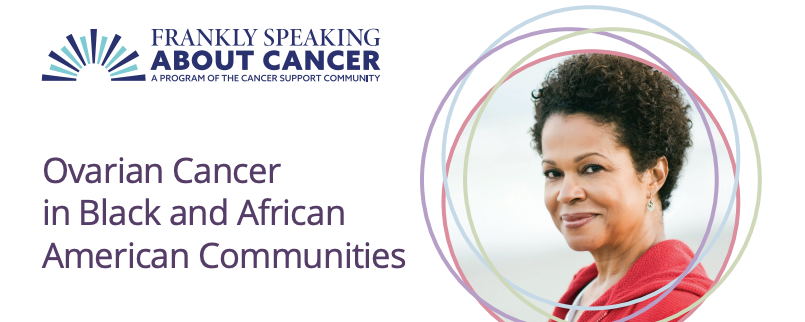Ovarian cancer outcomes are less positive for Black and African American persons compared to other communities, but the reasons why are not entirely clear. Anne Mette Buhl, PhD, Director of Science and Clinical Trials, from The Clearity Foundation, recently contributed to a fact sheet developed for The Cancer Support Community’s “Frankly Speaking About Cancer” program.
The fact sheet offers an easy-to-understand overview of important and potentially life-saving information about ovarian cancer and highlights topics of particular relevance to the Black and African American Communities, including:
- Parts of the body impacted in addition to the ovaries
- Recognizing signs and symptoms
- Understanding risk factors and ways to reduce risk
- Why it’s important to know your medical history
- What you can learn from genetic testing and biomarker testing
- Treatment options
- The potential benefits of clinical trials
- Why it is so important for Black and African American women to participate in clinical trials
- What to do if cancer returns
- Getting a second opinion
- Managing costs
- How to cope and find support
As with many serious diagnoses, early detection is one of the best ways to improve survival. Therefore, one of most critical areas to address, particularly for the Black and African American community, is access to routine medical care for regular exams and the opportunity to discuss risk factors with a trusted clinician. Also, when women and their loved ones know the signs and symptoms of ovarian cancer, they are more likely to recognize them, seek care and do so sooner. Finally, it is critical to increase the diversity of participants in clinical trials because a person’s age, gender, and even race or ethnicity may affect how their cancer responds to treatment. When people of color participate in clinical trials, this helps to ensure the best treatment options are made available to them.
The complete fact sheet is available here to read and pass along to others to help get this critical, potentially life-saving, information out into communities and directly into more women’s hands.


